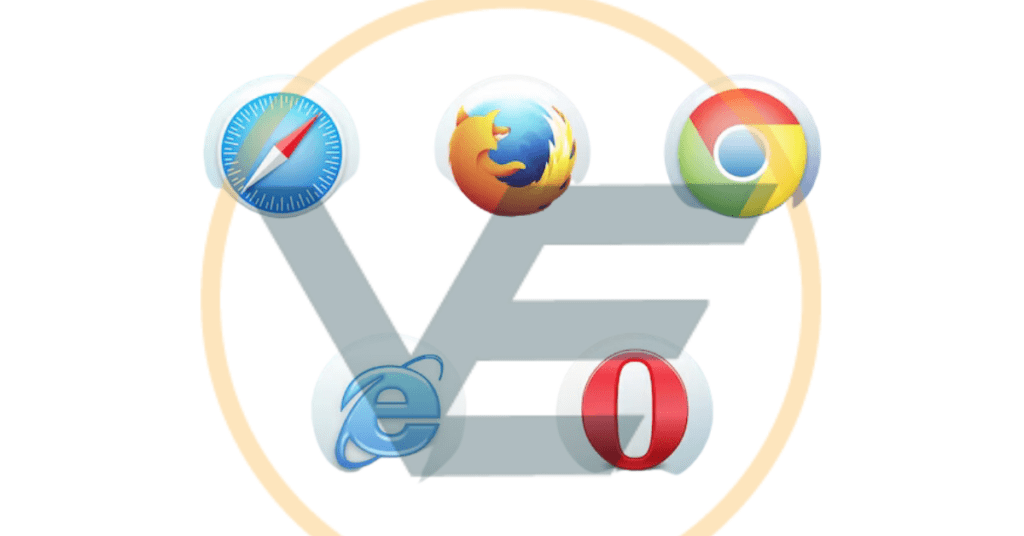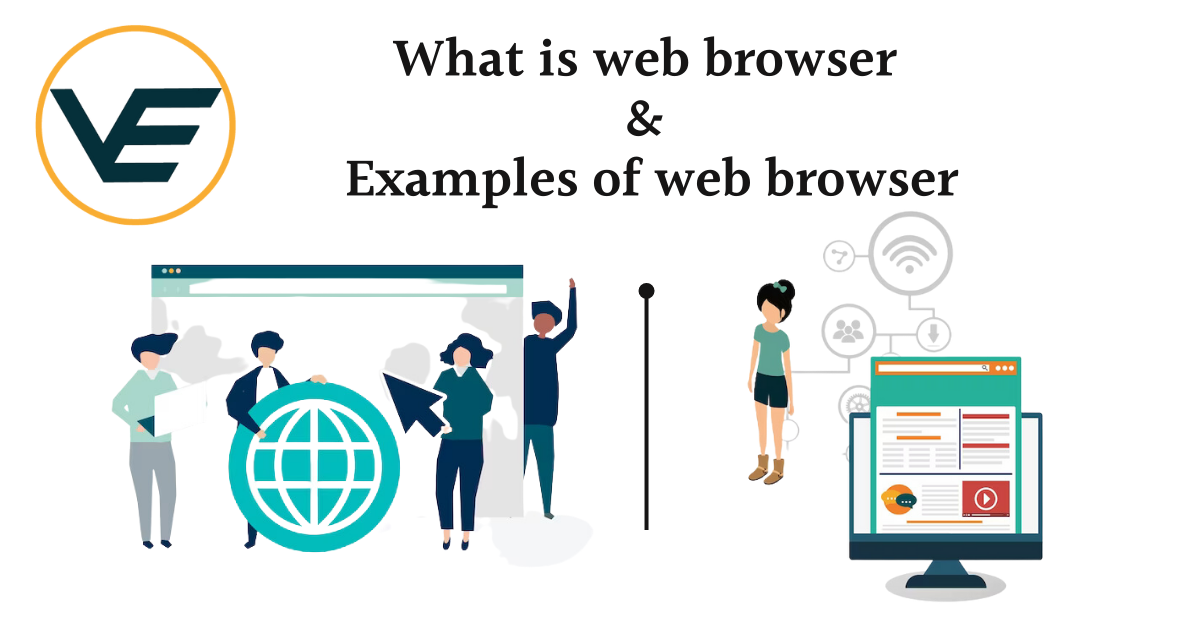Popular web browsers include Google Chrome, Mozilla Firefox, Microsoft Edge, Apple Safari, and Opera. Each browser may have its unique features, but they all serve the fundamental purpose of providing users with a way to explore and interact with the vast resources available on the internet.
What is Web Browser
Web browser is a software application or program that allows users to access and view content on the World Wide Web (WWW). It serves as the primary gateway for navigating the internet and interacting with websites, web applications, and online services. Web browsers interpret and render Hypertext Markup Language (HTML) documents, enabling users to interact with various web elements, such as text, images, links, videos, and interactive forms.
Features and Functions of Web Browsers
Here are some key features and functions of web browsers:
- User Interface: Web browsers provide a graphical user interface (GUI) that includes a window for viewing web content, an address bar for entering URLs (Uniform Resource Locators), and various navigation buttons.
- Rendering Engine: The rendering engine is a core component of a web browser that interprets HTML (Hypertext Markup Language), CSS (Cascading Style Sheets), and JavaScript to display web pages correctly.
- Navigation: Browsers allow users to navigate the internet by typing URLs or using bookmarks. They also provide forward and backward navigation buttons for moving through page history.
- Tabs: Most modern browsers support tabbed browsing, allowing users to open multiple web pages within a single window. Tabs make it easier to switch between different websites.
- Bookmarks: Users can save and organize their favorite websites by creating bookmarks. Bookmarks provide quick access to frequently visited pages.
- Security Features: Browsers implement various security measures to protect users from malicious websites. This includes features such as secure connections (HTTPS), phishing protection, and pop-up blockers.
- Extensions/Add-ons: Many browsers support extensions or add-ons, which are additional software components that users can install to enhance functionality. These can include ad blockers, password managers, and more.
- Download Manager: Browsers often come with a built-in download manager, allowing users to download files from the internet and manage their downloads.
- Private Browsing: Web browsers offer private or incognito modes that allow users to browse the web without storing browsing history, cookies, or other information.
Examples of Web Browsers
The 20 examples of web browsers are given below;

- Google Chrome: Developed by Google, Chrome is one of the most popular web browsers known for its speed, simplicity, and extensive support for web technologies.
- Mozilla Firefox: An open-source browser known for its privacy features, customization options, and robust add-ons.
- Apple Safari: Developed by Apple, Safari is the default browser for macOS and iOS devices, offering seamless integration with Apple products.
- Microsoft Edge: Developed by Microsoft, Edge is a modern browser designed for speed, security, and productivity, with deep integration into the Windows operating system.
- Opera: Opera is a feature-rich browser known for its built-in ad blocker, VPN, and data-saving mode.
- Brave: An privacy-focused browser that blocks ads and trackers by default, aiming to provide a faster and safer browsing experience.
- Vivaldi: Known for its high level of customization and advanced features, Vivaldi offers a unique and user-centric browsing experience.
- UC Browser: Developed by UCWeb, UC Browser is popular in many countries for its speed and data compression capabilities.
- Tor Browser: The Tor Browser focuses on anonymity and privacy by routing traffic through a volunteer overlay network known as the Tor network.
- Microsoft Internet Explorer: Although largely replaced by Microsoft Edge, Internet Explorer was a widely used browser in the past.
- Maxthon: Maxthon is a browser known for its cloud syncing features and a dual-engine design (using both WebKit and Trident).
- Avast Secure Browser: Developed by Avast, this browser emphasizes security, privacy, and built-in tools like a password manager.
- Pale Moon: A lightweight and customizable browser, based on Mozilla Firefox, but with a focus on efficiency.
- Midori: Midori is a lightweight browser known for its speed and simplicity, popular on Linux platforms.
- Epic Privacy Browser: A privacy-centric browser that blocks ads, trackers, and encrypts connections for enhanced security.
- Waterfox: Based on Mozilla Firefox, Waterfox is optimized for 64-bit systems and maintains compatibility with legacy add-ons.
- Yandex Browser: Developed by Yandex, this browser integrates various Yandex services and offers a clean interface.
- SeaMonkey: SeaMonkey is an all-in-one suite that includes a web browser, email client, and internet relay chat (IRC) client.
- Konqueror: Part of the KDE software suite, Konqueror is a versatile browser for Linux systems with advanced file management features.
- DuckDuckGo Privacy Browser: Built with privacy in mind, this browser blocks third-party trackers and enforces encrypted connections.
Why is web browser so important?
Web browsers are crucial and hold significant importance for several reasons:
- Gateway to the Internet: Web browsers serve as the primary gateway for accessing the vast expanse of the internet. They provide users with a user-friendly interface to navigate and interact with websites, web applications, and online services.
- Information Access: Browsers enable users to access a wealth of information on a wide range of topics, from news and research to educational resources and entertainment content.
- Communication and Collaboration: Browsers facilitate communication through email, social media platforms, messaging apps, and video conferencing tools, allowing people to connect and collaborate across the globe.
- Online Shopping and Banking: Browsers enable e-commerce, allowing users to shop online, make secure transactions, and manage their finances through online banking portals.
- Multimedia and Entertainment: Browsers support multimedia content, such as streaming videos, music, and online gaming, providing users with a diverse range of entertainment options.
- Cloud-Based Services: Many web-based applications and cloud services rely on browsers for access, enabling users to use productivity tools, storage services, and collaborative platforms.
- Education and Learning: Browsers are essential for online learning platforms, providing access to educational resources, online courses, and digital libraries.
- Research and Reference: Browsers facilitate research and access to academic journals, articles, and reference materials, aiding students, academics, and professionals in their work.
- Online Government Services: Citizens can access government services, file taxes, and access official information through web browsers, simplifying administrative processes.
- Information Sharing: Browsers enable users to share content, articles, and links across social media and other platforms, contributing to the dissemination of information.
- Accessibility: Browsers play a crucial role in making the internet accessible to individuals with disabilities through assistive technologies and features.
- Innovation and Development: Browsers provide a platform for developers to create and deploy web applications, fostering innovation and advancing technology.
- User Privacy and Security: Modern browsers implement security features like SSL encryption and phishing protection to ensure safe browsing and protect user data.
- Customization and Extensions: Users can personalize their browsing experience with themes and extensions, tailoring the browser to suit their preferences and needs.
- Cross-Platform Compatibility: Web browsers are available on various devices and operating systems, making the internet accessible to users on desktops, laptops, smartphones, and tablets.
In summary, web browsers have become an integral part of modern life, revolutionizing the way we access information, communicate, and engage with the digital world. They provide a gateway to a vast array of services and resources, making the internet an indispensable tool for work, education, entertainment, and connectivity.

